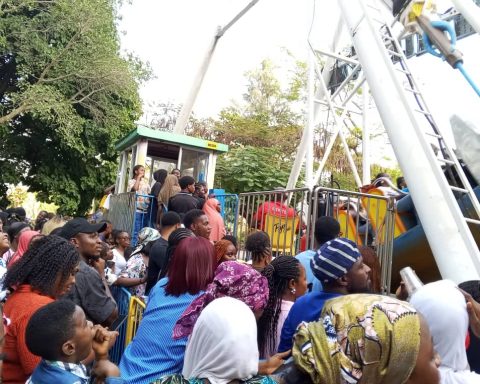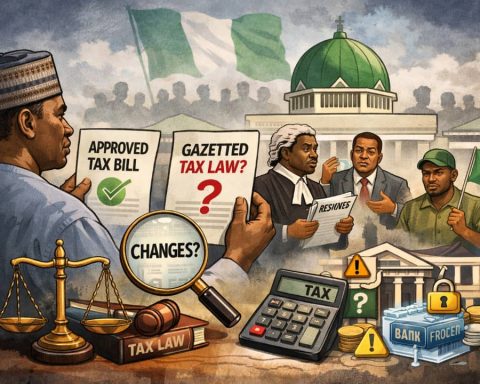Budgets are not neutral numbers. They are moral documents—contracts between governments and citizens. Each line item is a promise that classrooms will be safer, clinics more functional, and roads truly connective. When these numbers are reshaped into a frantic year-end sprint, what should be a disciplined program of public investment becomes a performance of governance without its substance.
Abia State’s 2024 spending on school repairs has become a striking case study of this distortion. Yet, Abia is not alone. Across the South-East, the choreography is familiar: bold appropriations on paper, hesitant execution for three quarters, then an explosive December rush. The result is a fog where citizens cannot tell whether resources moved with purpose or simply moved.
Join our WhatsApp ChannelThe numbers themselves are staggering. Abia budgeted ₦69.03 billion for repairs of public schools. Between January and September, just ₦4.26 billion was spent. Then, in a single quarter, a flood of ₦54.07 billion was disbursed. The total for the year stood at ₦58.32 billion, but more than 90 percent of that occurred in three months.
The health sector revealed a similar pattern. Out of ₦22.23 billion budgeted for rehabilitating health centers, a negligible ₦317.6 million went out in the first three quarters, followed by a torrent of ₦20.31 billion in the fourth quarter. Even at the capital expenditure level, the rhythm was identical. Of ₦474.29 billion in capital budget, actual spending was ₦250.47 billion, with ₦122.32 billion compressed into the final quarter. These figures do not align with the life cycles of projects; they merely track the end of the calendar.
Budgeting is not the art of capturing figures in an appropriation law but the discipline of ensuring those figures translate into real outcomes through timely, transparent, and predictable execution. A pattern where less than five percent of funds are disbursed across nine months, only for ninety percent to be rushed in a single quarter, signals liquidity stress, weak cash management, poor procurement planning, or deliberate backloading. Each possibility undermines budget credibility and corrodes public trust in the state’s ability to deliver services consistently. In practice, the so-called “December rush” is infamous. It breeds hurried procurement, abuse of emergency clauses, inflated contracts, and shoddy delivery. What is advertised as fiscal prudence often collapses into fiscal waste.
The procurement process adds another layer of concern. Procurement is meant to be structured, sequential, and competitive: advertisements, bidding, evaluations, awards, mobilisation, and payments. Each stage requires time. How, then, could Abia legitimately execute ₦54 billion worth of school repairs within one quarter? Unless emergency or selective procurement was invoked, the timelines simply do not fit. And if they were invoked, where is the transparency? Citizens have a right to know whether contracts respected value-for-money principles, adhered to procurement law, and avoided inflated pricing. Without this, the expenditure risks being tagged as opaque and potentially wasteful.
Absorptive capacity also comes into question. If the state had the institutional and technical ability to absorb over ₦54 billion in three months, why was this capacity dormant for nine? The more plausible explanation is bureaucratic or political compulsion to exhaust appropriations before the fiscal clock expired. Such “catch-up spending” rarely comes with quality assurance, monitoring, or evaluation. Projects delivered under duress often deteriorate quickly, leaving citizens with structures that are neither durable nor functional.
READ ALSO:
- 19 Years On, Abia Dry Port Still Dormant – Otti Urges Rail Inclusion, Infrastructure Push
- South East Development Commission Eyes $200bn Economy By 2035
Numbers, however large, mean little without lived impact. Parents and teachers in Abia do not examine budget reports; they examine classrooms. They can tell whether roofs leak, desks arrived, and toilets flush. They know whether their children’s learning environment changed or whether the ₦58.3 billion dissolved into paperwork. Likewise, health workers measure budgets through equipment that works, water that runs, and medicines that are stocked. A ₦20.3 billion fourth-quarter spend means nothing if the nurse cannot sterilize tools or if patients still buy essentials from private pharmacies. The gap between appropriation and lived experience is where governance credibility is truly judged.
Transparency is supposed to bridge this gap. Abia established a procurement law in 2012, complete with a Council and Bureau of Public Procurement. For a time, it even published open contracting data between 2018 and 2021. But the portal is now dormant, leaving no accessible record of who won contracts, for how much, and for what scope of work. This absence breeds suspicion. Even well-intentioned spending becomes vulnerable to allegations of misuse when citizens cannot trace the path from appropriation to project delivery.
Zooming out, the pattern is regional. Ebonyi has one of the most functional open contracting portals, active between 2020 and 2025, with most contracts reportedly competitively bid. Yet, even with transparency, its capital spending showed a year-end bulge: out of ₦229.97 billion spent in 2024, ₦126.56 billion was squeezed into the fourth quarter.
Transparency, while valuable, did not prevent the December rush. Enugu updated its procurement law in 2021 but stopped publishing OCDS data in June 2022. Of its ₦207.20 billion capital spend in 2024, ₦46.63 billion was executed in the last quarter—a smaller tilt than Abia but still lopsided. Anambra maintains the most current OCDS dataset, reaching up to May 2025. But nearly all contracts are awarded through selective bidding. Its 2024 capital expenditure of ₦201.14 billion included ₦104.11 billion in Q4.
On school repairs, the concentration was absolute: every naira of ₦5.39 billion was spent in the last quarter. Imo, by contrast, has no functional OCDS portal. Its 2024 capital spending was ₦227.69 billion, with ₦88.86 billion disbursed in Q4. Opacity plus compression compounds risk: the public has neither a timeline nor a trace. The verdict is clear: laws exist, portals were built, but practice drifts. Competitive ideals are eroded, data windows close, and the December syndrome reigns.
The problems are not mysterious, nor are the solutions. Cash planning must be disciplined so that releases follow project timelines, not political deadlines. Procurement calendars must be front-loaded, with advertisements, evaluations, and awards concluded early enough to allow execution in the dry season rather than in the final weeks of the year.
Open contracting portals must be kept live, comprehensive, and regularly updated, linking every naira to contractors, milestones, and completion reports. Oversight institutions such as Public Accounts Committees must interrogate anomalies like Abia’s ₦54 billion school repairs compressed into one quarter or Anambra’s one-hundred-percent fourth-quarter spending profile on school repairs. Citizens, too, can play a role. Parents can document before-and-after conditions of classrooms, health committees can verify hospital upgrades, journalists can trace contracts to project sites, and professional associations can evaluate workmanship and pricing.
The true test of governance is not the size of allocations but the reality of delivery. Abia’s year-end torrent in education and health has not earned public trust because the tools of verification have gone dark. Ebonyi shows that portals can remain alive but proves that transparency without disciplined scheduling is still insufficient. Enugu must close its data gap, Anambra must move from selective to competitive awards, and Imo must restore a functional procurement window. Budgets must be retuned to a healthier rhythm—one where money flows across the year, tied to milestones visible to parents, patients, and communities.
Numbers can tell the truth, but they can also tell on us. In the South-East, they tell us that budgets are large enough to matter but executed in ways that compromise value, quality, and trust. If governments continue staging a December theatre, citizens will keep paying for tickets to a show they never asked to watch. The only way forward is to shift the stage from performance to delivery, from opacity to accountability, from promises written in numbers to promises kept in lives. God is with us!
Prof. Chiwuike Uba, Ph.D., CPA, FCMA is a
Professor of Economics with keen interest in Public Financial Management & Public Sector Reforms and serves as the
Chairman of the Board, ACUF Initiative for Policy and Governance Ltd/Gte. He can be reached at
chiwuike@gmail.com.










